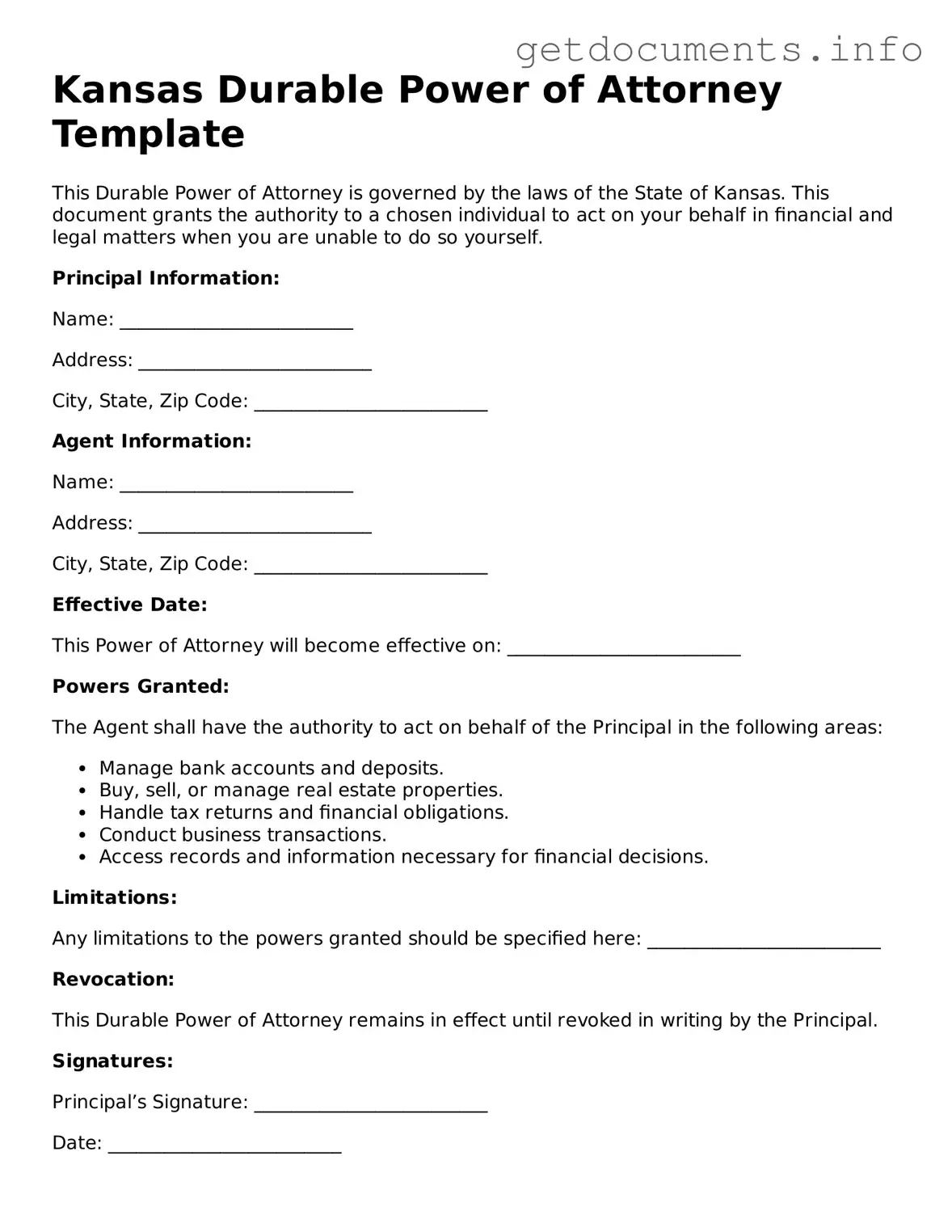Free Durable Power of Attorney Template for Kansas
A Kansas Durable Power of Attorney form is a legal document that allows an individual to appoint someone else to make financial and legal decisions on their behalf, even if they become incapacitated. This form is crucial for ensuring that a person's wishes are respected when they can no longer communicate them. For those considering this important step, filling out the form is essential; click the button below to get started.
Access Durable Power of Attorney Editor

Free Durable Power of Attorney Template for Kansas
Access Durable Power of Attorney Editor
Got places to be? Complete the form fast
Fill out Durable Power of Attorney online and avoid printing or scanning.
Access Durable Power of Attorney Editor
or
⇩ PDF File
